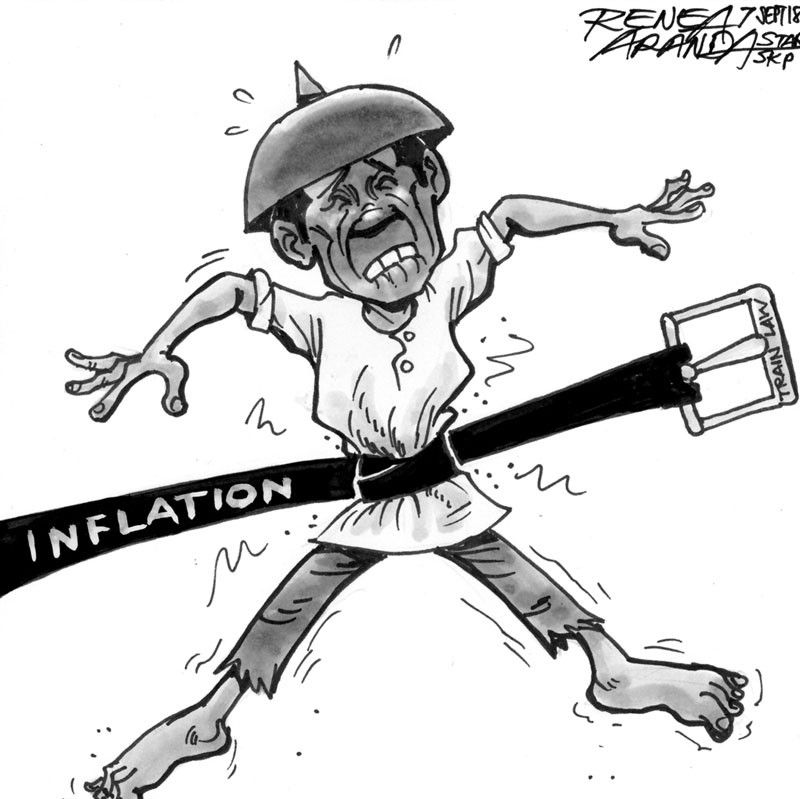EDITORIAL - Reviewing TRAIN

Last year, opponents of the measure warned about the potential consequences of certain provisions of the tax reform package, particularly the imposition of a hefty excise tax on fuel products. They were dismissed as doomsayers and spoilers of the Build Build Build infrastructure expansion program, which the government aims to finance mostly through the additional revenue to be raised from the Tax Reform for Acceleration and Inclusion or TRAIN.
Today the impact of TRAIN is being seen in such a negative light that the administration and its congressional allies have found it prudent to rename its second phase acronym TRABAHO – for Tax Reform for Attracting Better and High Quality Opportunities – instead of TRAIN 2. This week the House of Representatives approved the TRABAHO bill on second reading, with the third and final approval normally considered a formality.
Even with the new acronym, which means jobs, however, various quarters including certain economists have not changed their mind about calling for the suspension or at least a review of TRAIN 1, particularly the fuel excise tax, and a reconsideration of TRABAHO. The calls have intensified following the latest inflation report, which showed consumer prices rising to a nine-year high of 6.4 percent last month.
While the government’s economic managers have long insisted that the fuel component accounts for less than 1 percent of inflation following the implementation of TRAIN 1 this year, other economists disagree. They point out that fuel and related logistics costs are factored into the prices of many consumer goods including vegetables and other food items. Food and non-alcoholic beverages accounted for the biggest component in the 6.4 percent inflation rate.
The TRAIN law, however, provides for an automatic suspension of the fuel excise tax only if world crude prices hit $80 per barrel. This is not yet happening. Lawmakers who passed the TRAIN law, reluctant to take any blame for soaring prices, are also reluctant to introduce amendments.
Inflation is compounded by the peso’s weakening to a 12-year-low as of yesterday and the stock market tumbling as a contagion from emerging markets appeared to spread. Several economists point out that ordinary Filipinos aren’t blaming any external factors, but TRAIN for their shrinking purchasing power. The Philippine economy is decelerating and business confidence is slipping. A flood of imports to bring down prices of rice and fish may also aggravate poverty among farmers and fisherfolk. The government must act decisively with measures that can be implemented quickly.
- Latest
- Trending





























